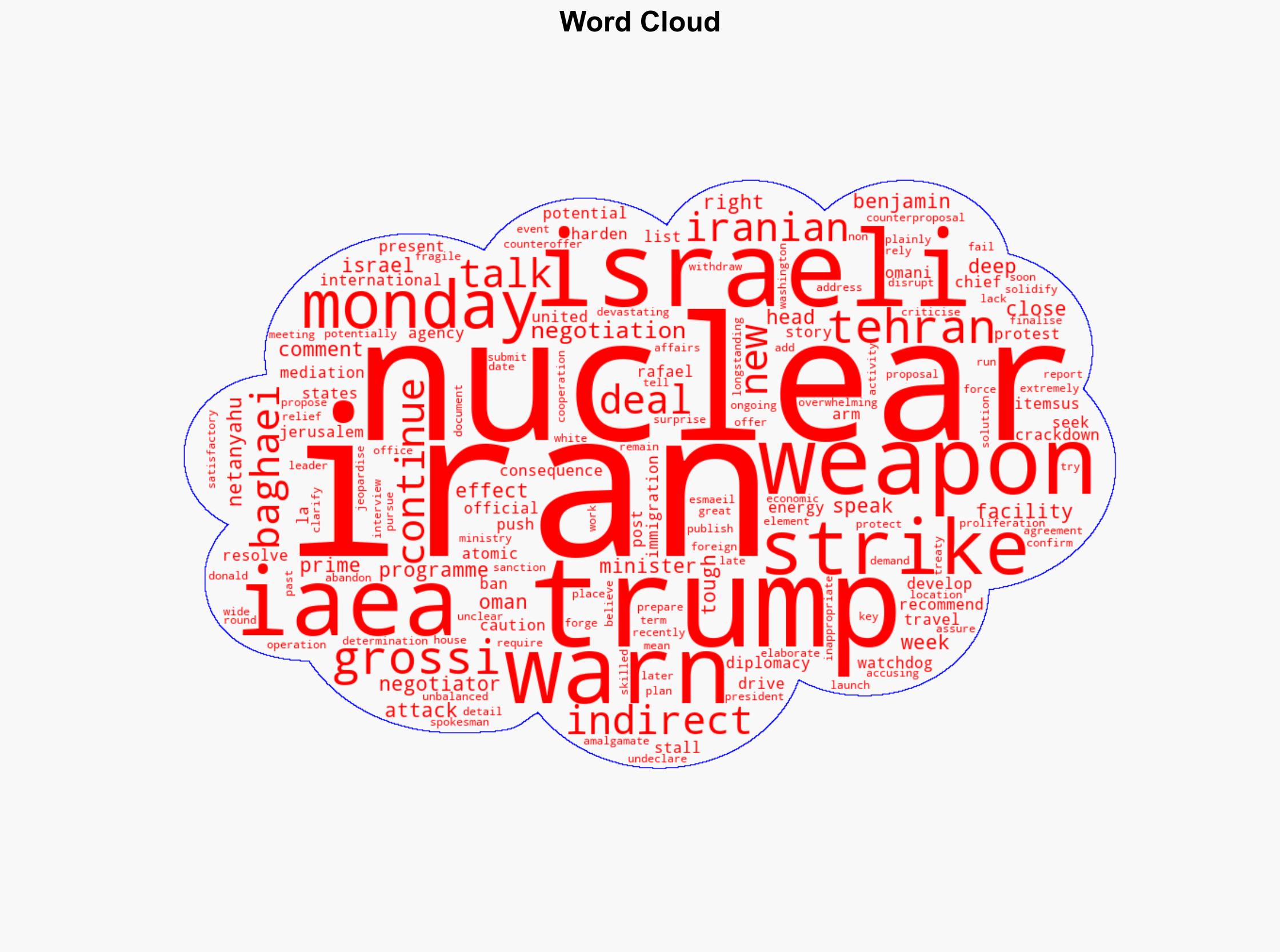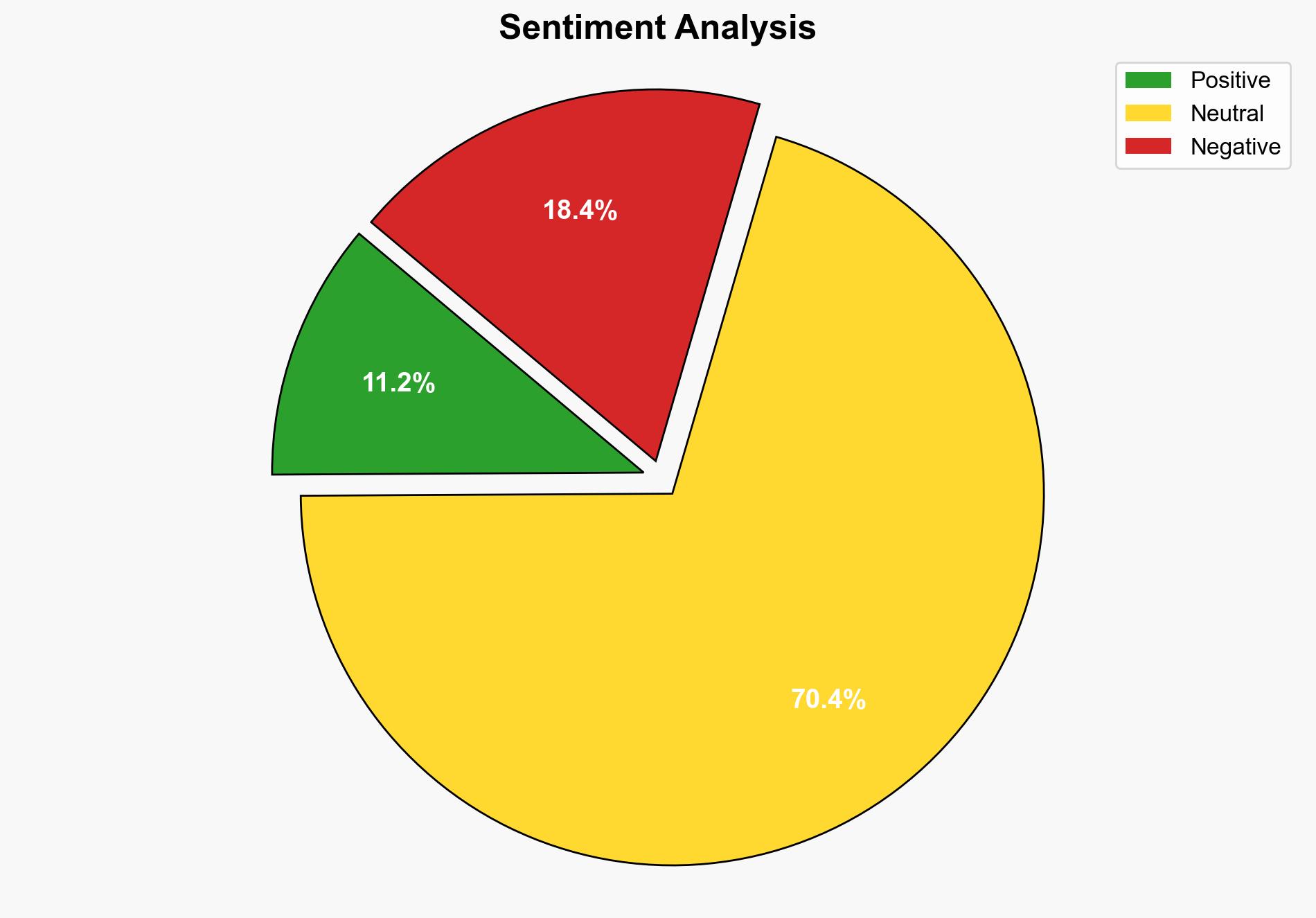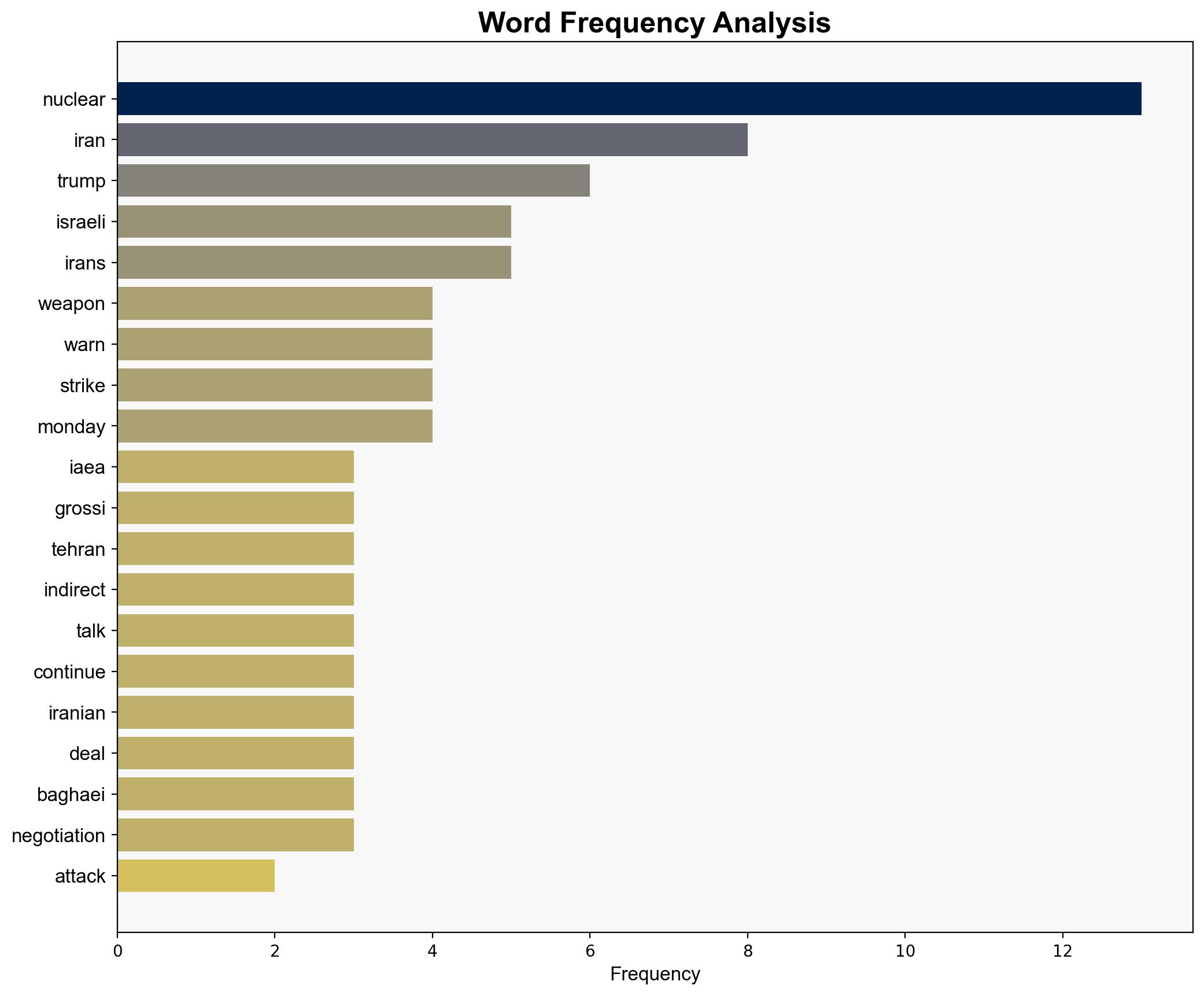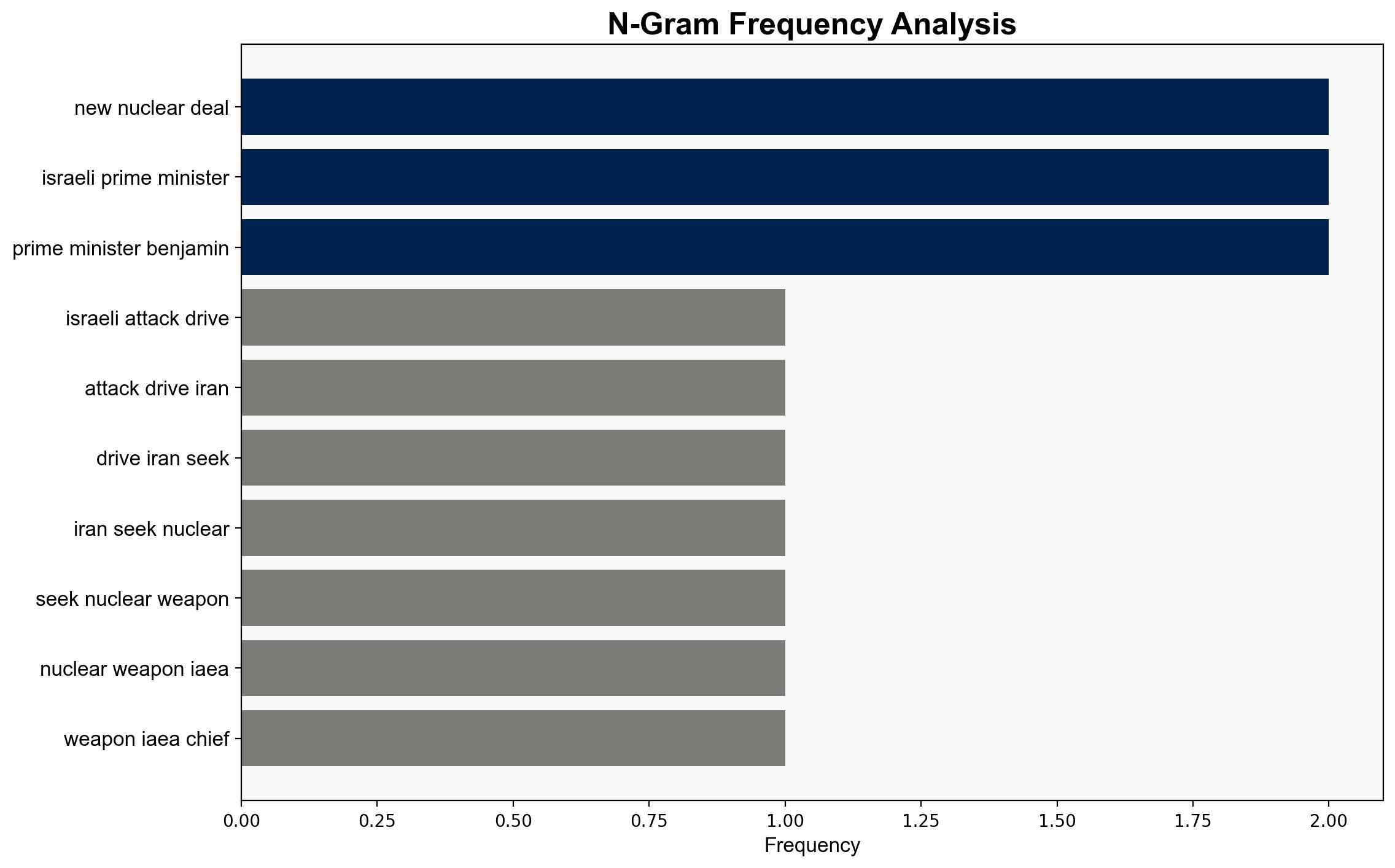Israeli attack could drive Iran to seek nuclear weapons IAEA chief warns – Al Jazeera English
Published on: 2025-06-09
Intelligence Report: Israeli attack could drive Iran to seek nuclear weapons IAEA chief warns – Al Jazeera English
1. BLUF (Bottom Line Up Front)
The International Atomic Energy Agency (IAEA) chief, Rafael Grossi, warns that an Israeli attack on Iran’s nuclear facilities could harden Iran’s resolve to develop nuclear weapons. This potential escalation could destabilize regional security and undermine ongoing diplomatic efforts between the United States and Iran. Immediate strategic considerations should focus on diplomatic engagement and conflict de-escalation.
2. Detailed Analysis
The following structured analytic techniques have been applied to ensure methodological consistency:
Causal Layered Analysis (CLA)
Surface events indicate heightened tensions due to potential Israeli military actions. Systemic structures reveal a complex interplay of international diplomacy, with Iran’s nuclear ambitions at the core. Worldviews are shaped by historical animosities and strategic deterrence doctrines. Myths include the perceived inevitability of conflict in the region.
Cross-Impact Simulation
An Israeli strike could trigger a series of retaliatory actions by Iran, impacting neighboring states and global oil markets. The simulation suggests potential disruptions in diplomatic negotiations and increased regional militarization.
Scenario Generation
Best Case: Diplomatic channels successfully de-escalate tensions, leading to renewed negotiations and a potential nuclear agreement.
Worst Case: Military conflict escalates, resulting in widespread regional instability and economic disruptions.
Most Likely: Continued diplomatic stalemate with intermittent escalations, maintaining a precarious status quo.
3. Implications and Strategic Risks
The potential for military conflict poses significant risks to regional stability, with implications for global energy markets and international security. Cybersecurity threats may increase as state and non-state actors exploit vulnerabilities. The risk of nuclear proliferation could rise, challenging non-proliferation treaties and global security frameworks.
4. Recommendations and Outlook
- Enhance diplomatic efforts to facilitate dialogue between Israel and Iran, potentially through third-party mediation.
- Strengthen cybersecurity measures to protect critical infrastructure from potential retaliatory cyberattacks.
- Prepare contingency plans for regional allies to mitigate economic and security impacts of potential conflict.
- Scenario-based projections suggest prioritizing diplomatic engagement to avoid worst-case outcomes.
5. Key Individuals and Entities
Rafael Grossi, Esmaeil Baghaei, Benjamin Netanyahu, Donald Trump
6. Thematic Tags
national security threats, nuclear proliferation, regional stability, diplomatic negotiations




